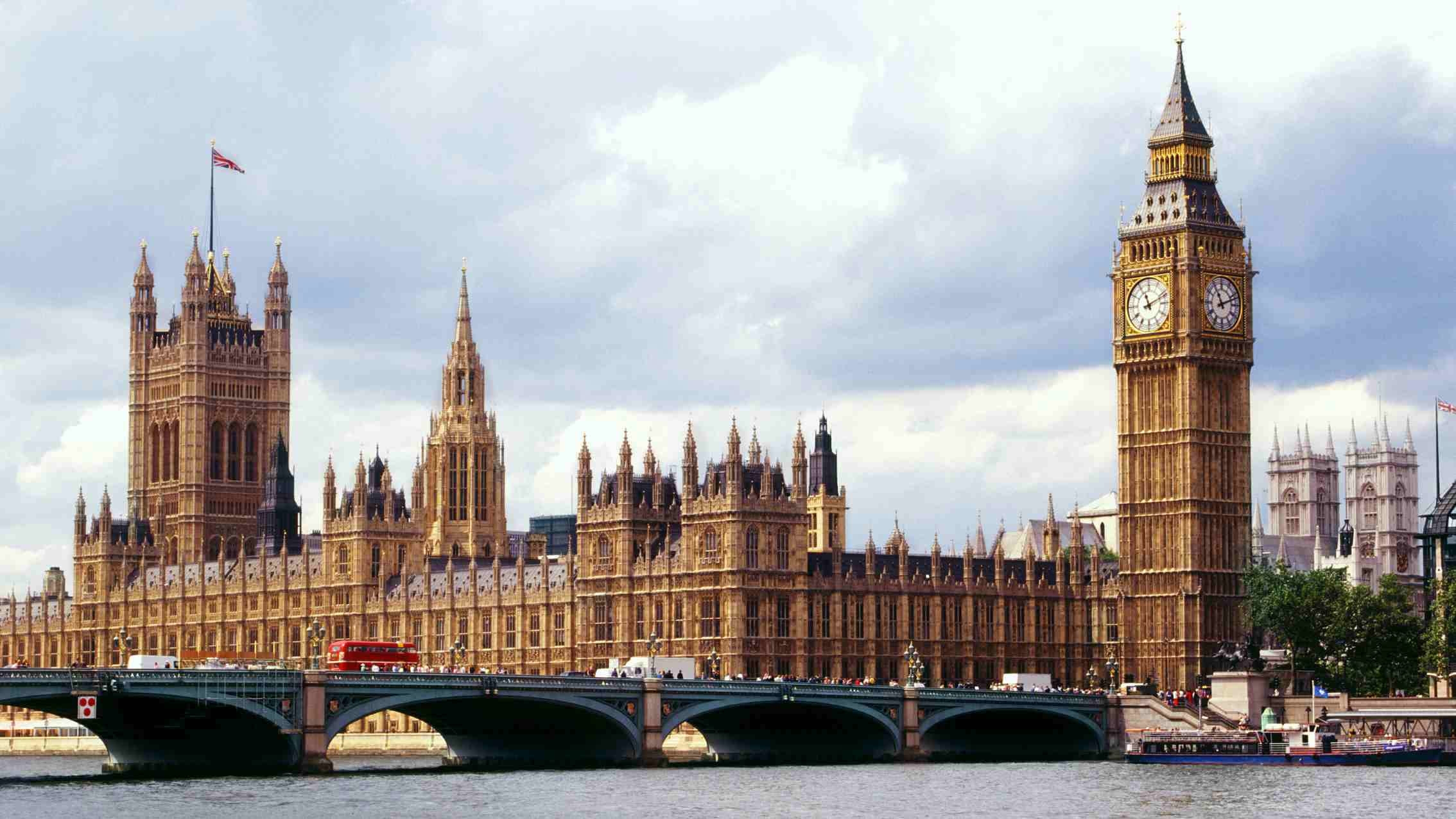The UK government has approved arms sales worth 368 million US dollars to Saudi Arabia during the six months after Saudi-led airstrikes on Yemen funeral killed at least 140 people in last October, The Independent reported Sunday.
The airstrike launched by Saudi-led coalition forces hit a funeral ceremony in Yemen's capital Sana’a on October 8 last year, killing at least 140 and injuring over 500.
The attack was aimed at Houthi rebels, who are loyal to Yemen's deposed President Ali Abdullah Saleh. The rebels began their attacks in 2014 and forced President Abd Rabbuh Mansur Hadi to flee the country for a time.
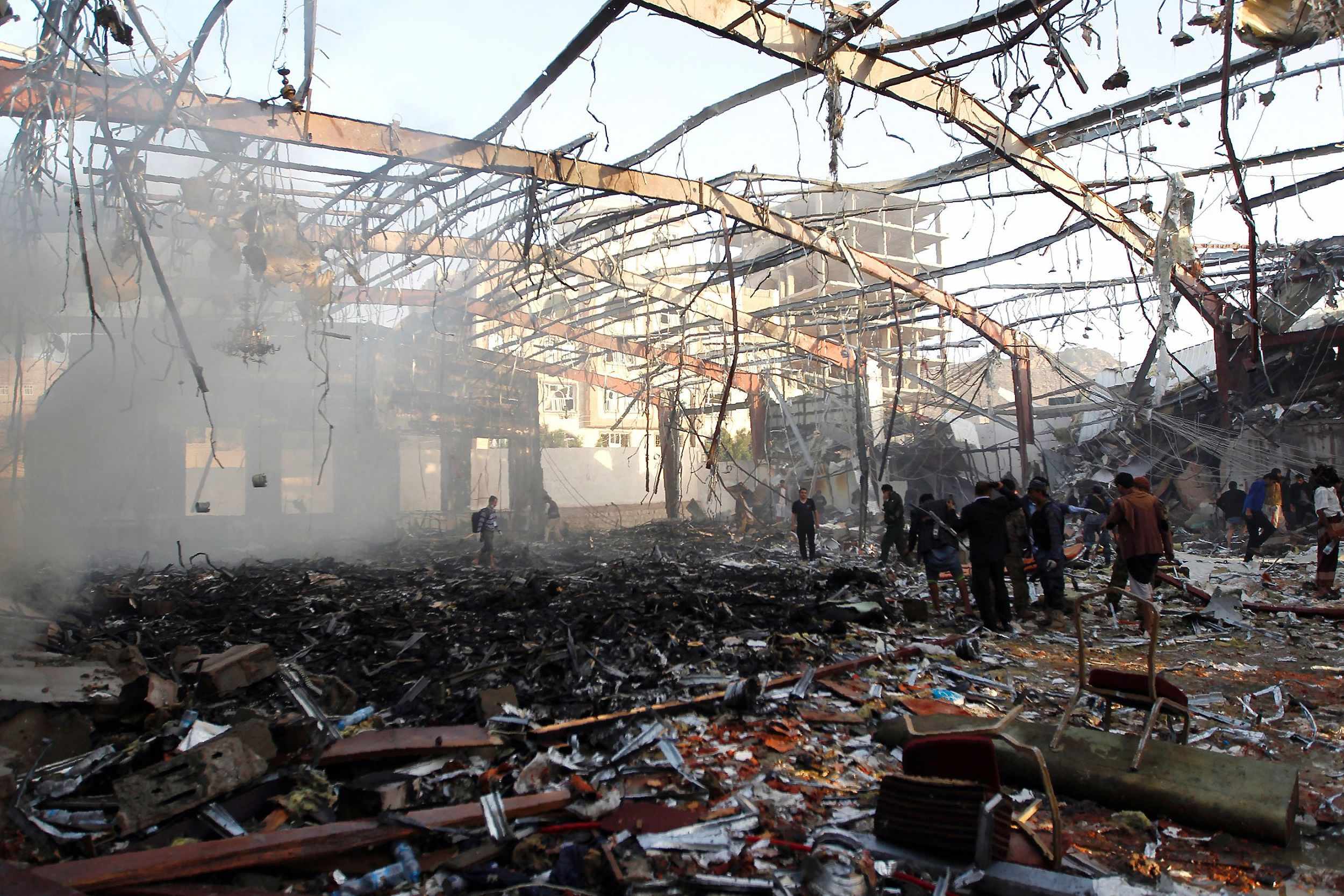
This file photo taken on October 8, 2016 shows the destruction following reported airstrikes on a funeral hall by Saudi-led coalition forces on a building in the Yemeni capital Sanaa. /VCG Photo
This file photo taken on October 8, 2016 shows the destruction following reported airstrikes on a funeral hall by Saudi-led coalition forces on a building in the Yemeni capital Sanaa. /VCG Photo
Since March 2015, Saudi has launched a brutal war on Yemen in an attempt to crush Houthi rebels, and reinstate President Hadi.
Saudi Arabia is the UK's most important weapons client, but British arms exports to the Middle East country have faced strict examination because of the conflict.
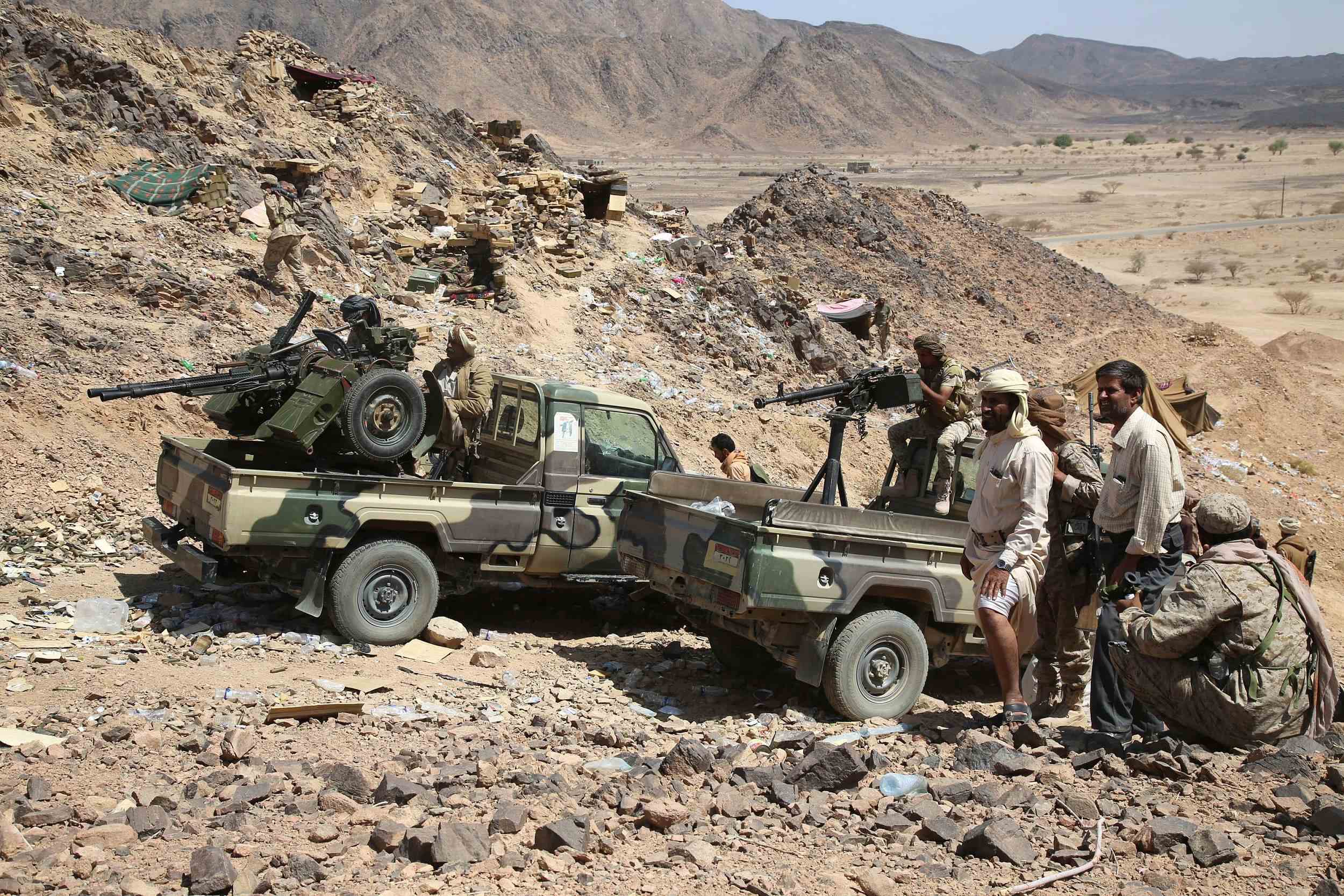
Armed Yemeni tribesmen from the Popular Resistance Committees, supporting forces loyal to Yemen's Saudi-backed President Abedrabbo Mansour Hadi, hold a position in the area of Sirwah west of Marib city, on Ocober 28, 2015.
Armed Yemeni tribesmen from the Popular Resistance Committees, supporting forces loyal to Yemen's Saudi-backed President Abedrabbo Mansour Hadi, hold a position in the area of Sirwah west of Marib city, on Ocober 28, 2015.
The UK trade secretary Liam Fox delayed signing the export licenses and his officials prepared for sales to be suspended.
However, according to the documents obtained by the Guardian, foreign secretary Boris Johnson advised Fox that the sales should continue, as he believed there was no clear risk that the weapons would be used for serious breaches of international humanitarian law.
In the following six months, the government authorized exports including 342 million US dollars worth of combat aircraft components to the Saudi air force, along with five million US dollars worth of bombs and missiles, The Independent reported citing data from Campaign Against Arms Trade, who brought the case to court claiming that ministers were acting illegally by not suspending weapon sales to Saudi Arabia.
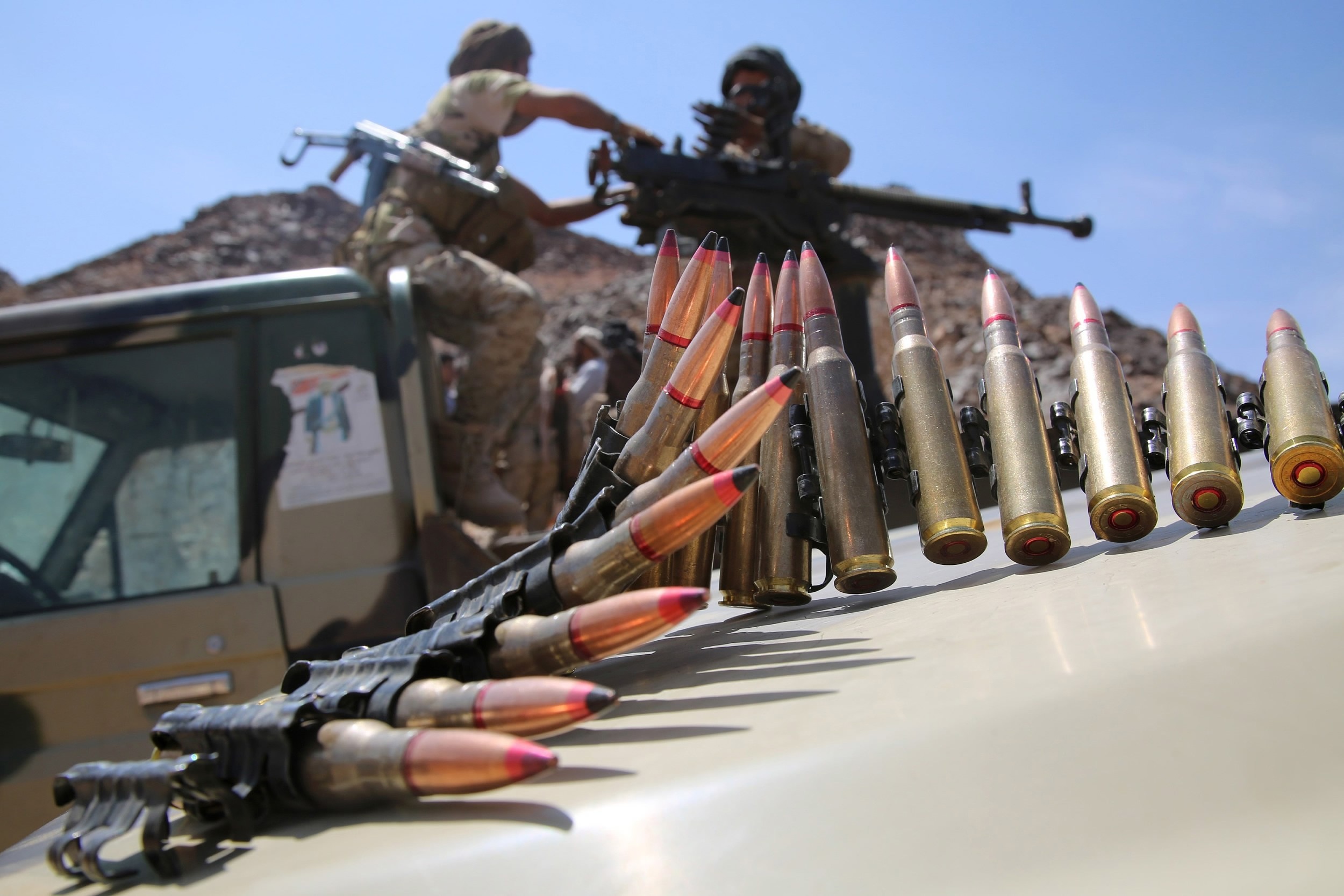
Armed Yemeni tribesmen from the Popular Resistance Committees, supporting forces loyal to Yemen's Saudi-backed President Abedrabbo Mansour Hadi, hold a position in the area of Sirwah west of Marib city, on Ocober 28, 2015.
Armed Yemeni tribesmen from the Popular Resistance Committees, supporting forces loyal to Yemen's Saudi-backed President Abedrabbo Mansour Hadi, hold a position in the area of Sirwah west of Marib city, on Ocober 28, 2015.
According to the report, the figure does not include aircraft cannon equipment, targeting software, aircraft components, assault rifles and more that were exported under 24 open licenses, in which the value of the equipment is not recorded.
"The terrible funeral bombing should have been a time for reflection and for the UK to reconsider its uncritical political and military support for Saudi Arabia,” said Andrew Smith, spokesman for the campaign. “Instead, it has continued licensing fighter jets, bombs and other deadly weapons to the regime."
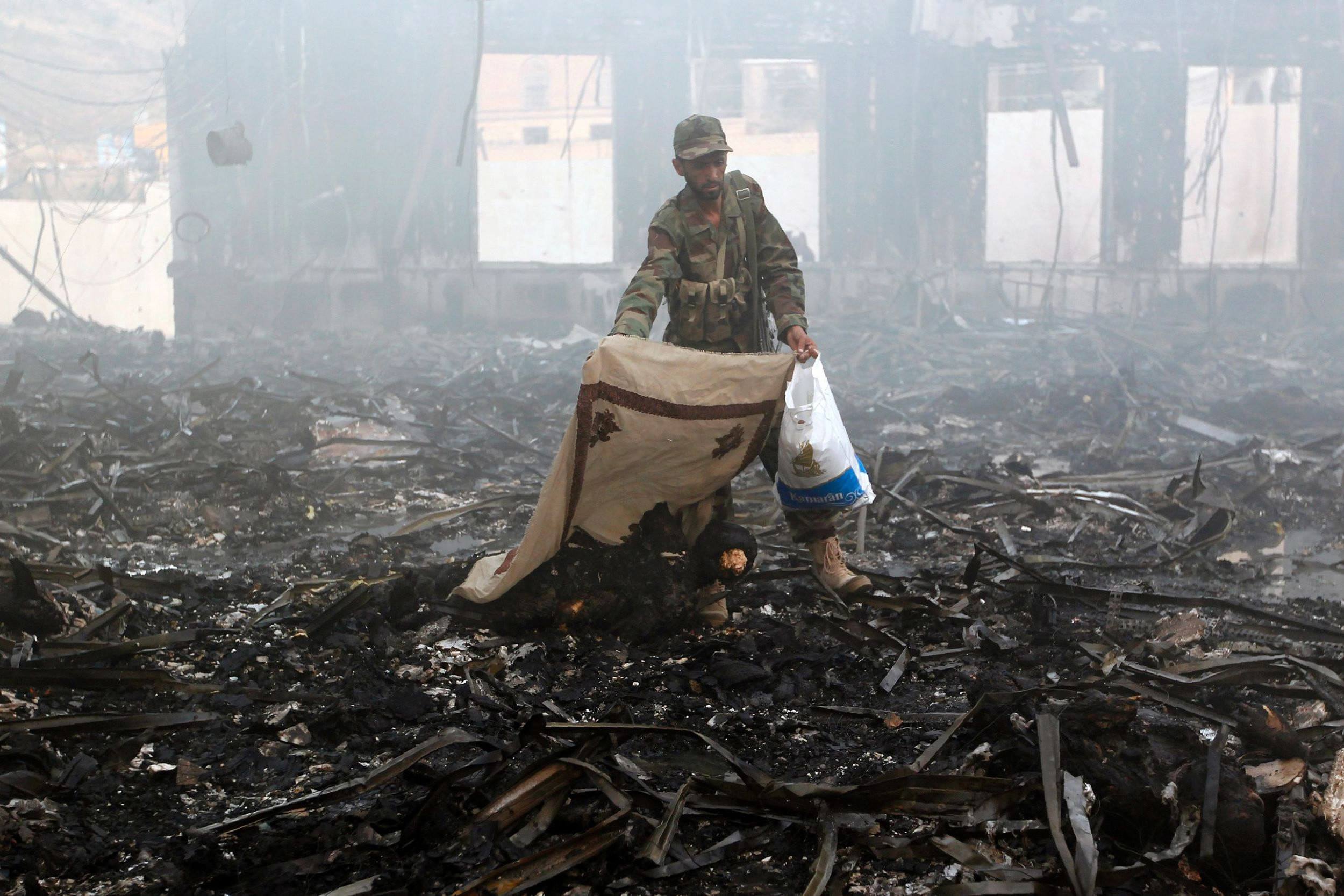
This file photo taken on October 08, 2016 shows a Yemeni man covering a charred body amid the rubble of a destroyed funeral hall building following reported airstrikes by Saudi-led coalition forces on the Yemeni capital Sana’a. /VCG Photo
This file photo taken on October 08, 2016 shows a Yemeni man covering a charred body amid the rubble of a destroyed funeral hall building following reported airstrikes by Saudi-led coalition forces on the Yemeni capital Sana’a. /VCG Photo
Despite the allegations of Saudi Arabia's indiscriminate bombing of civilians in Yemen, earlier this month, British high court ruled the government had not broken the weapons export laws by continuing to approve arms sales to Saudi Arabia.
"If killing 140 people and turning a scene of mourning into a massacre isn’t enough to stop the arms sales, then what more would it take?, Smith said. "Yemen has fallen into a terrible humanitarian catastrophe. How many more people need to die before the UK finally does the right thing and stops arming the regime?” added Smith.
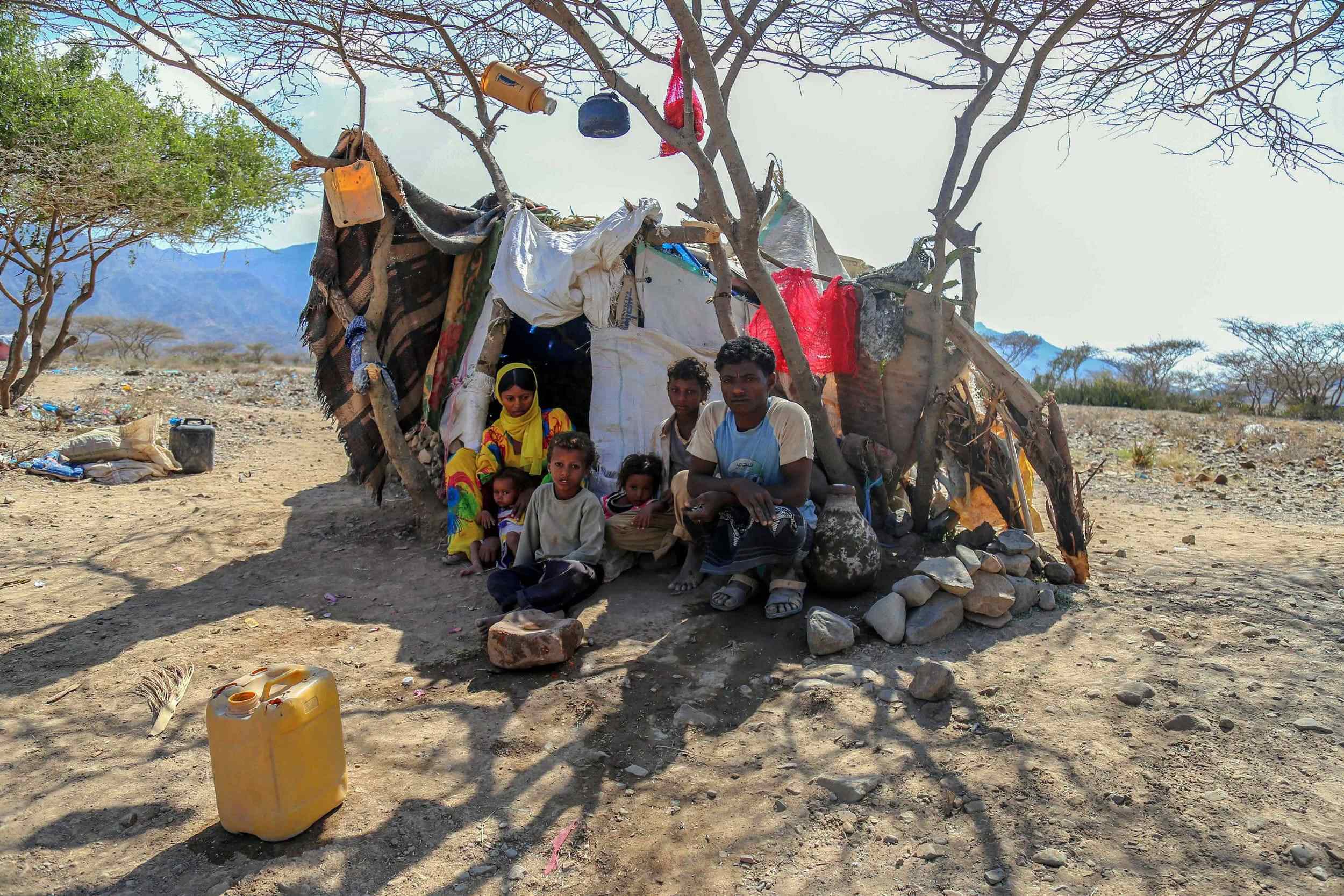
A Yemeni family sit outside their shelter at a camp for internally displaced people on the outskirts of the southern city of Taez on January 11, 2017. /VCG Photo
A Yemeni family sit outside their shelter at a camp for internally displaced people on the outskirts of the southern city of Taez on January 11, 2017. /VCG Photo
According to UK and EU arms sales rules, export licenses cannot be granted if there is a “clear risk” that the weapon could be used to break international humanitarian law.
The judges said "closed material", which had not been made public for national security reasons, "provides valuable additional support for the conclusion that the decisions taken by the Secretary of State not to suspend or cancel arms sales to Saudi Arabia were rational".
The Saudi-led coalition has faced repeated criticism over killing civilians in Yemen. Since the conflict began, more than 10,000 people have been killed and millions have been driven from their homes.

